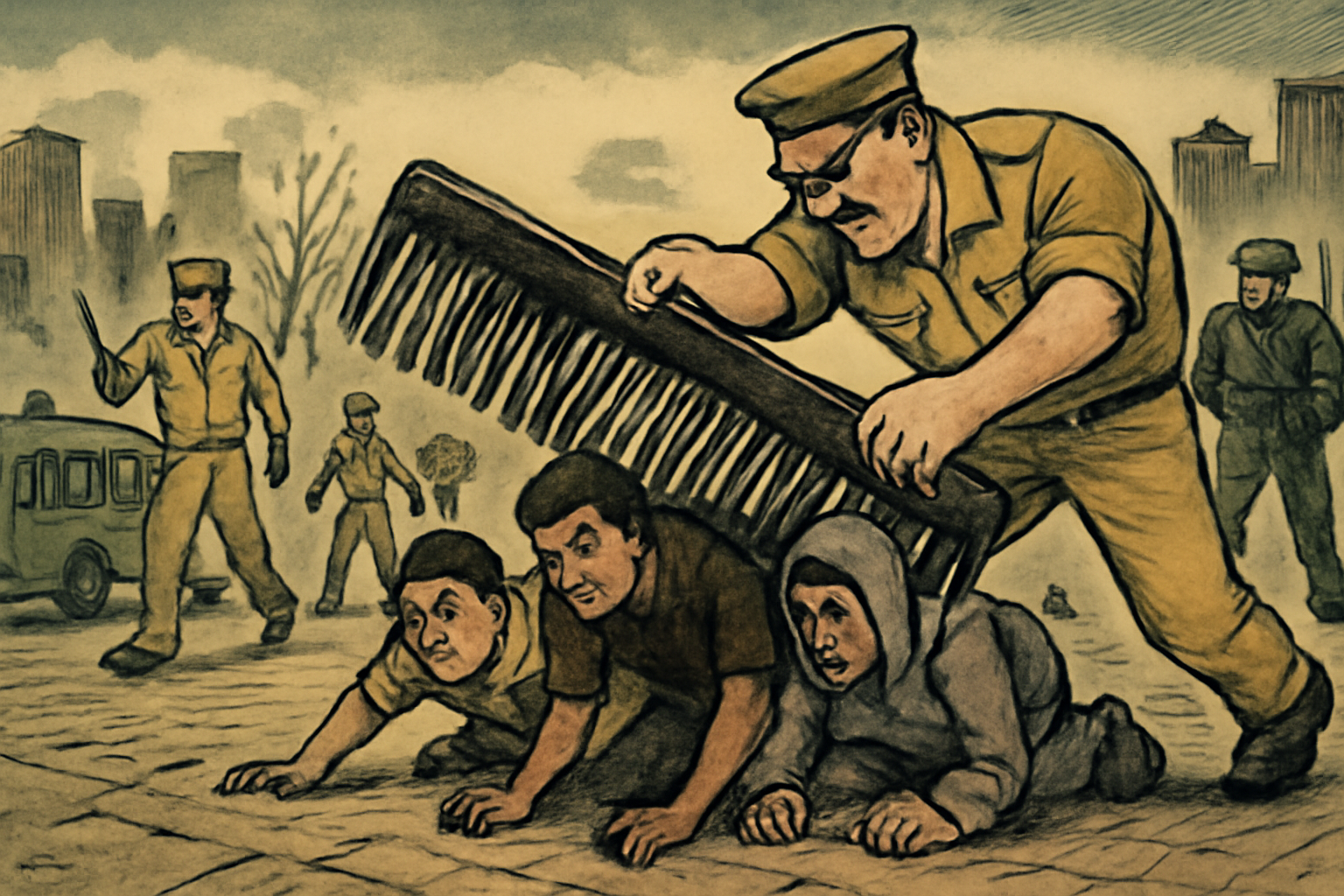Amid rising wave of grisly violence and massive public protests, authorities have launched a sweeping nationwide crackdown to dismantle criminal networks accused of extortion, armed attacks, mob violence and gender-based violence. Police headquarters has ordered all Superintendents of Police (SPs) and Officers-in-Charge (OCs) to update lists of known offenders as part of an intensified drive to restore law and order.
The move follows a surge in brutal incidents that have left citizens shaken and law enforcement credibility under scrutiny. In recent weeks, cities across the country have witnessed daylight murders, targeted attacks, and brazen extortion attempts—often carried out with impunity.
On Sunday night, the government formally launched the crackdown following a high-level meeting of the Advisory Committee on Law and Order at the Secretariat. “A countrywide combing operation is underway to uproot criminal elements,” said Home affairs Adviser Lieutenant General (retd.) Jahangir Alam Chowdhury. “Political identity will offer no protection—every offender will face justice.”
Inspector General of Police Baharul Alam said law enforcement agencies are updating intelligence on extortionists, land grabbers, and those involved in organised violence. “We’ve identified individuals occupying transport terminals, sand quarries, and illegally collecting tolls. This will stop,” he declared. “We will restore peace—firmly and lawfully.”
The crackdown is seen as a response to a string of high-profile incidents that have rocked the nation. On Wednesday, scrap trader Lal Chand Sohel was beaten to death in front of Mitford Hospital in Dhaka. Just two days later, Jubo Dal leader Mahbubur Rahman Molla was hacked and mutilated in Khulna. In Chandpur, a machete-wielding attacker stormed a mosque and injured an imam. In the capital’s Pallabi and Shyamoli areas, residents reported gunfire and armed robbery over extortion demands.
“These aren’t isolated events,” a senior police officer told TIMES, requesting anonymity. “The system has weakened. Criminals feel untouchable, and without robust intelligence-driven enforcement, the situation will spiral further.”
Data from police paint a grim picture. In June, 344 murder cases were filed—up from 341 in May and 336 in April. Cases involving violence against women and children totalled 1,933 in June alone.
Since the fall of the previous government on 5 August last year, over 5,700 weapons were looted during attacks on police stations—1,369 of which are still missing. Police insiders admit these weapons are likely fuelling organised violence across the country.
Complicating efforts, law enforcers are still facing resistance in some areas. “In certain zones, mobs have attacked police teams,” said a senior official. “Some criminals continue to enjoy political patronage, making decisive action difficult.”
Rights organisations say the rising tide of violence reflects a deeper erosion of accountability. Ain o Salish Kendra reported 330 rape cases between January and June this year, including 66 gang rapes and 22 rape-murders. Over the same period, 89 people were killed in mob violence—45 of them in Dhaka.
“The killing of Lal Chand is not an anomaly,” said the Human Rights Support Society in a statement. “It is a product of the culture of impunity.”
Government officials, however, have pledged to act decisively. “The Mitford murder was reviewed in detail,” said a senior participant in Sunday’s meeting. “Those responsible will be arrested regardless of political background. No exception will be made.”
At a post-meeting press briefing, Security Adviser Chowdhury remarked, “The Mitford killing is a stain on civil society. We are treating it with the utmost seriousness. The culprits will be brought to justice.”
In a parallel development, the government has extended the temporary executive magistracy powers granted to commissioned officers of the armed forces. Initially introduced on 17 September last year, the authority—covering captains and above, including officers in the Coast Guard and Border Guard—will remain in effect for another 60 days from 14 July, the Ministry of Public Administration confirmed on Sunday.
Officials say the operation will intensify in the coming days, with combined efforts from police, intelligence, and military units under the coordination of the Home Ministry’s Joint Command Centre. With public confidence at stake, authorities say this is their strongest bid yet to regain control.


